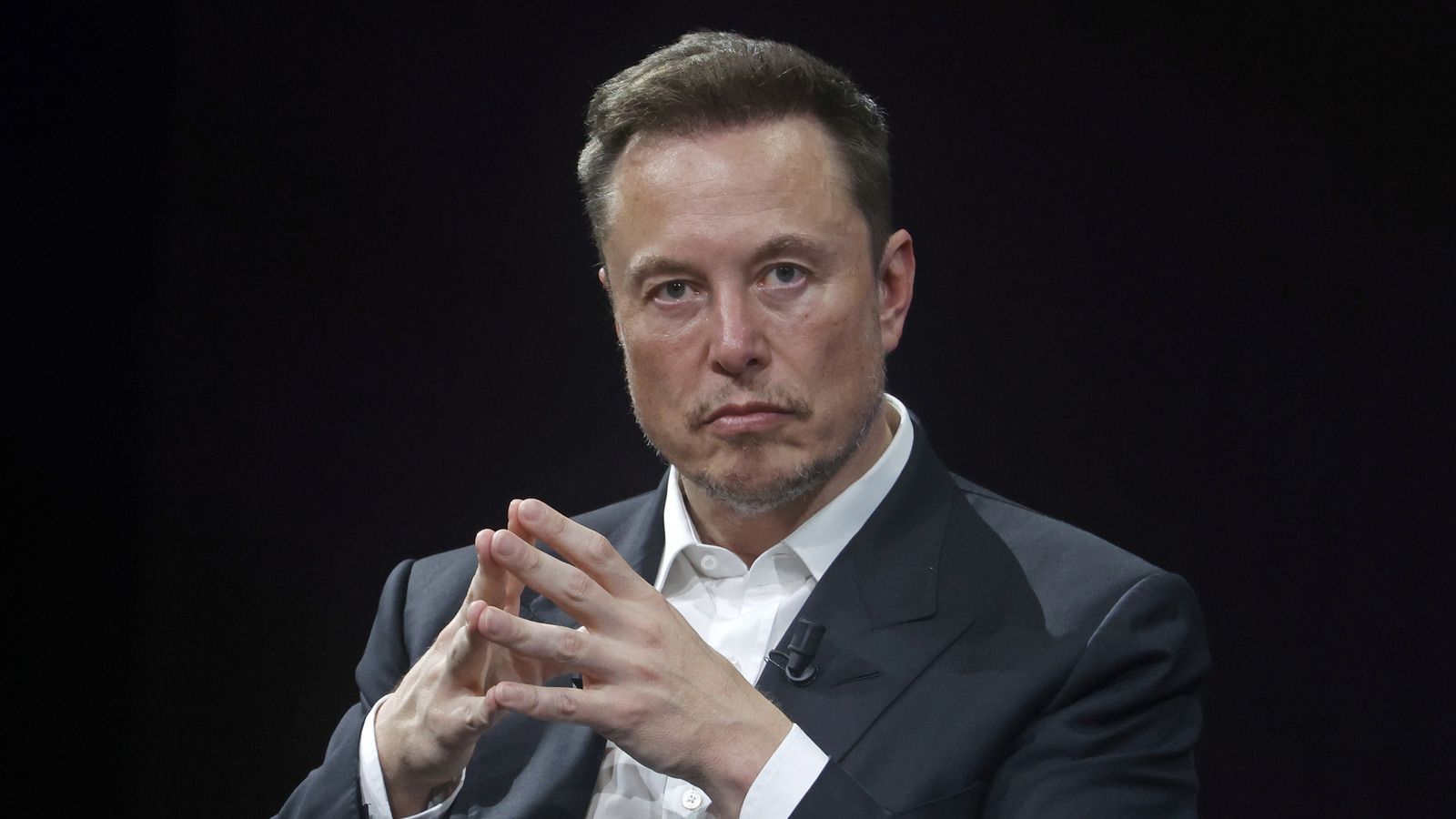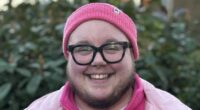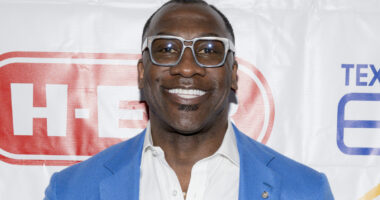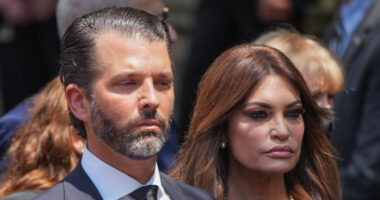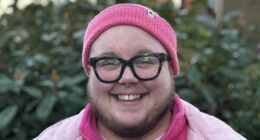As of September 2024, Elon Musk was named the world’s richest person, with an estimated net worth of $237 billion. At the rate he’s going, Musk is predicted to become the world’s first-ever trillionaire by 2027. Musk’s vast wealth is derived from a variety of sources, including his stakes in some of the world’s most recognizable brands, including electric vehicle manufacturer Tesla and social media platform X (which originated as Twitter). He’s also thrown billions into SpaceX, his ambitious space agency that aims to mount a manned mission to Mars; Musk, in fact, has stated his intention to begin launching starships bound for Mars as soon as 2026, with an ultimate goal of forming a colony on the red planet.
“Elon thinks bigger than just about anyone else I’ve ever met,” David Sacks, former PayPal COO, told the Los Angeles Times of Musk’s rapid rise. “He sets lofty goals and sets out to achieve them with great speed.”
Of course, no conversation about Musk is complete without mentioning the aura of controversy that engulfs him, from his incendiary statements, to his feuds with various celebrities and his often outrageous opinions — which he insists on sharing with the world, whether the world wants to hear them or not. To chart the journey of this often-contentious mogul, read on to explore the complete transformation of Elon Musk.
Elon Musk grew up rich in South Africa before immigrating to Canada
Elon Musk is a prime example of how money can beget more money, and his story is certainly not of the rags-to-riches variety. As a profile on Musk in The New York Times pointed out, he enjoyed an elite upbringing in Johannesburg, growing up in segregated communities where anti-Black propaganda was rampant; in that strata of South African society, the people of color who associated with white people were typically those who served them. As a result, the opinions that he and his friends formed about race weren’t likely to have been terribly informed. “We were really clueless as white South African teenagers. Really clueless,” one of Musk’s high school classmates, Melanie Cheary, told the Times.
After graduating high school, Musk avoided South Africa’s mandatory military service by attending Queen’s University in Canada. He then attended the University of Philadelphia, ultimately earning two bachelor’s degrees, in economics and physics.
With his Penn degrees in hand, he then headed to Stanford, where he was accepted as a PhD candidate. As he explained in an interview with Sam Altman, he had a very specific goal in mind. “And then, when I came out to go to Stanford, that’s what I was going to be doing my grad studies on was working on advanced energy storage technologies for electric cars,” he said.
He dropped out of Stanford to launch a tech startup that made him millions
Elon Musk didn’t stick around Stanford for long; in fact, the PhD candidate dropped out after just two days to launch a tech startup with his brother, Kimbal Musk. That company was called Zip2 Corporation, which provided online city guides when the internet was in its early stage and desperate for content. Before long, the material he was producing was being picked up by the websites of some major media outlets.
Musk had a hunch that there was big money to be made via the internet, and he wasn’t wrong. In 1999, the Musk brothers sold the company to Compaq for an impressive sum, with Elon earning $22 million. With that kind of money, Musk could have retired on a beach somewhere, living out the Jimmy Buffett fantasy, but his entrepreneurial drive was too strong. “I could go an buy one of the islands in Bahamas and turn it into my personal fiefdom,” Musk said in a 1999 interview for a documentary on young millionaires. “I’m much more interested in trying to build and create a new company.”
And that’s precisely what he did, when he and his brother took the money they’d made, and used it to launch another startup, a financial services company called X.com.
Elon Musk made a fortune with the sale of PayPal
Interviewed for that 1999 documentary, Musk was wildly optimistic about the possibilities of his new venture. “I think X.com could be a multi-billion dollar bonanza,” he declared. Once again, Musk’s instincts proved to be spot on, with X.com eventually merging with another similar company to become a new entity called PayPal.
Initially, the plan was to enable the transfer of money via the PalmPilot hand-held computer. Musk, however, correctly predicted that the Palm would be a bust, and instead pivoted to expand the technology to perform the same function on any type of PC. As traffic grew, Musk noticed the first to adopt were those who were buying stuff on eBay, another genius startup that allowed people to sell items online. He saw an opportunity to quickly expand and created a viral marketing campaign that paid $10 to every new PayPal customer. The result was an explosion in growth that made PayPal a major player.
In 2002, PayPal went public, with a $1.2 billion market cap; a few months later, eBay purchased PayPal for a whopping $1.5 billion in stock. At the time of the deal, Musk owned 11% of the stock, which was worth an estimated $150 million. Once again, Musk used his financial windfall to fund some other groundbreaking ideas that he’d been kicking around.
He took over Tesla and founded SpaceX
Using the money he made from the PayPal deal, Elon Musk began to invest heavily in Tesla, a company developing cutting-edge technology to make the dream of cars powered by electricity a reality. Musk’s $6.35 million investment led him to become chairman of Tesla’s board. He then staged a corporate coup that granted him control of the company. Tesla went public in 2010, raising $226 million in its IPO.
In 2002, Musk founded Space Exploration Technologies Corporation, better known as SpaceX, which he envisioned as eventually offering commercial flights into space. “I like to be involved in things that change the world,” he told The Los Angeles Times. “The internet did, and space will probably be more responsible for changing the world than anything else. If humanity can expand beyond the Earth, obviously that’s where the future is.”
He subsequently revealed plans to embark on manned flights to Mars; in September 2024, Musk announced that he’d accelerated the timeline considerably. “The first Starships to Mars will launch in two years when the next Earth-Mars transfer window opens. These will be uncrewed to test the reliability of landing intact on Mars. If those landings go well, then the first crewed flights to Mars will be in four years,” he tweeted.
Elon Musk was criticized for spreading COVID-19 disinformation
When the world was hit by COVID-19 in the early part of 2020, there was a lot of conflicting information about the virus. Among those who claimed that COVID wasn’t a big deal was Elon Musk, who not only questioned the severity of the virus but also propagated conspiracy theories about it. “The coronavirus panic is dumb,” he tweeted in March 2020. A few months later, he gave an interview to The New York Times, for its “Sway” podcast, and insisted that once a vaccine became available, neither he nor anyone in his family would receive it. “I’m not at risk for COVID, nor are my kids,” said Musk. After questioning the stay-at-home orders put in place, he was reminded that many people could die otherwise — but was unmoved by that argument. “Everybody dies,” he said.
As the pandemic dragged on, Musk began issuing statements indicating he was in the anti-vaccine camp, villainizing Dr. Anthony Fauci. “My pronouns are Prosecute/Fauci,” he tweeted in late 2022. He went on to claim that there were no young, healthy people who’d died from COVID (which wasn’t true) and the heart attack suffered by Bronny James, son of NBA great LeBron James, while playing basketball was a side effect of the vaccine.
He stirred up controversy when he hosted Saturday Night Live
Live from New York — it’s Elon Musk! That became reality in the spring of 2021, when he was invited to host the American TV institution, “Saturday Night Live.” That decision didn’t go over well with the show’s cast, with several of them (including Bowen Yang, Andrew Dismukes, and Aidy Bryant) publicly expressing their annoyance. Clearly, the goal was to pull in ratings via controversy, and Musk didn’t disappoint in his opening monologue, in which he claimed to have undiagnosed Asperger’s. He also defended his status as a controversy magnet by trying to explain his Twitter posts. “I know I sometimes say or post strange things, but that’s just how my brain works,” he said, as reported by Deadline. “To anyone I’ve offended I just want to say: I reinvented electric cars and I’m sending people to Mars in a rocket ship … did you also think I was going to be a chill, normal dude?”
As for the sketches, Musk did not earn rave reviews; as The Guardian pointed out, Musk had wildly overestimated his comedy skills in an episode that did not rank among the season’s best.
Elon Musk paid $44 million for Twitter and then renamed it X
As Elon Musk grew wealthier, he also grew increasingly famous. One vehicle he used to build his public profile was Twitter, utilizing the social media platform as a delivery system for his increasingly outrageous tweets. In early 2022, he began investing in Twitter, eventually owning more than 9% of the stock — which, at the time, was valued at being worth $2.89 billion. By October, he completed the purchase, plunking down a staggering $44 billion. “Twitter needs to be transformed as a private company,” he said in a Securities and Exchange Commission filing.
To boost profitability, Musk instituted immediate layoffs, affecting half of Twitter’s staff. He then instituted a new “Twitter Blue” program, which allowed any account to be verified by paying an $8 monthly fee, replacing the previous practice of a verification process to ensure celebrities and others really were who they claimed to be. As a result, Twitter was overrun by verified fake accounts of NBA superstar LeBron James, former NYC mayor Rudy Giuliani, and even Musk’s own Tesla.
Within months of buying Twitter, Musk renamed it X. “Twitter was acquired by X Corp both to ensure freedom of speech and as an accelerant for X, the everything app,” he tweeted. “This is not simply a company renaming itself, but doing the same thing.”
Elon Musk has been accused of supporting antisemitism and white nationalism
In November 2023, Elon Musk commented on a X post that was widely condemned as antisemitic, tweeting, “You have said the actual truth.” After he was hit with backlash, he eventually apologized. “I mean, look, I’m sorry for that … post. It was foolish of me. Of the 30,000 it might be literally the worst and dumbest post I’ve ever done,” he said while speaking at The New York Times’ Dealbook Summit, reported CNN. However, he was unmoved by threats of an advertising boycott due to accounts promoting antisemitism and white nationalism that had flourished on the platform ever since he’d taken over. “I don’t want them to advertise,” he defiantly declared. “If someone is going to blackmail me with advertising or money go f*** yourself.”
That didn’t exactly cause the controversy to die down, so he subsequently undertook a tour of the death camp at Auschwitz. Once again, the public was dubious about his motivation; The New York Times‘ Andrew Higgins was particularly unimpressed, dismissing Musk’s visit as a “rehabilitation tour.”
By the following year, the proliferation of pro-Nazi accounts on X had soared; a report from NBC News found more than 150 verified accounts that praised the Third Reich’s ideals, with seven of the most popular accounts racking up 4.5 million views within a week. Meanwhile, during that same time frame, a post claiming the Holocaust was a hoax was viewed 1.6 million times and shared by more than 5,300 other accounts.
He challenged fellow tech mogul Mark Zuckerberg to a cage match with
Elon Musk and Facebook/Meta founder Mark Zuckerberg have been engaged in a feud for years, ever since an exploding SpaceX rocket blew up a Facebook satellite.
It all came to a head in the summer of 2023, when an anti-Zuckerberg tweet from Musk was met with a response warning that Zuckerberg had been training in jiu-jitsu. “I’m up for a cage match if he is lol,” Musk tweeted. A few hours later, reported People, Zuckerberg responded to Musk’s joking tweet with a challenge via Instagram Story, writing, “Send me location.” Musk then tweeted: “Vegas Octagon.”
The two billionaires continued trading barbs via social media, with Zuckerberg posting photos and videos of himself looking shockingly ripped while relentlessly training; Musk, on the other hand, insisted he could multitask when he tweeted that he was too busy to train, but brought his barbells to work. Musk then proposed a new venue: the Colosseum in Rome, with the fight to be live-streamed via X . Musk then claimed he required back surgery, but would enter the ring as soon as he’d recovered. Fed up with Musk’s stalling, Zuckerberg called it off. “I think we can all agree Elon isn’t serious and it’s time to move on,” Zuckerberg wrote in a post on Threads. “Elon won’t confirm a date, then says he needs surgery, and now asks to do a practice round in my backyard instead. If Elon ever gets serious about a real date and official event, he knows how to reach me.”
Elon Musk fathered 12 children with three different women
Elon Musk has heeded nature’s imperative to propagate his species, which he’s proven by fathering numerous children. Musk and his first wife, Justine Wilson, welcomed a son, Nevada, in 2002. Sadly, the child died at 10 weeks of age due to sudden infant death syndrome. The couple then turned to IVF and had twins Griffin and Vivian (the latter came out as transgender in 2022). They then were joined by triplets Kai, Saxon, and Damian.
After divorcing Wilson, Musk was then married to “Westworld” star Talulah Riley — twice. After their second divorce, he had a brief romance with Amber Heard, “Aquaman” star and ex-wife of Johnny Depp. Musk then hooked up with Canadian singer Grimes (real name: Claire Elise Boucher), with whom he shares three kids: son X Æ A-12 (nicknamed X); daughter Exa Dark Sideræl (nicknamed Y), born via surrogate; and Techno Mechanicus (a.k.a. Tau). Musk then moved on to a relationship with Neuralink executive Shivon Zilis, with whom he shares twins Strider and Azure. The couple also welcomed a third child, although the sex wasn’t initially divulged.
Musk’s relationship with daughter Vivian has been fraught. In an interview, he declared (via Le Monde) his opposition to his child’s transition. “My son Xavier is dead, killed by the woke mind virus,” Musk said. Vivian responded in an interview with NBC News. “He was cold,” she said. “He’s very quick to anger. He is uncaring and narcissistic.”
He’s been offered a government position in a second Trump administration
Trump seemingly began moving to the right politically upon the rise of Donald Trump’s MAGA movement, and by the time Trump mounted his third bid for president in 2024, Musk had apparently gone all in on MAGA. That was evident when Trump revealed that he’d offered Musk a special role within his administration, one that he’d created especially for him.
Musk welcomed Trump for an interview, which was live-streamed on X. During that conversation, Trump praised Musk for his ability to trim excess to maximize profitability. He then stated he’d create a special commission to weed out inefficiency within the federal government and wanted Musk to be in charge of it. “I need an Elon Musk — I need somebody that has a lot of strength and courage and smarts,” Trump declared, as reported by The Associated Press.
Musk was apparently ready to seize the offer. “I look forward to serving America if the opportunity arises,” Musk tweeted. “No pay, no title, no recognition is needed.”
Elon Musk’s X was banned in Brazil, joining a growing list of countries where it’s unavailable
Elon Musk’s takeover of Twitter, now renamed X, has generated more controversy than profit. According to a January 2024 report in The Guardian, the value of the social media platform had fallen by a staggering 71% since Muck’s $44-billion acquisition. Later that year, X was at the center of a legal battle in Brazil after an investigation into X allowing disinformation to spread. According to Poynter, Brazil Supreme Court Justice Alexandre de Moraes ordered X to abide by the country’s laws regarding the dissemination of fake news. Musk ignored that order; Brazil took action and banned X altogether.
Brazil, of course, is one of many countries to ban Twitter. China and Iran, for example, blocked the app way back in 2009, while North Korea and Myanmar followed suit in 2016 and 2021, respectively. Since Musk took control, other countries that have ditched X include Pakistan and Ethiopia.
According to Kurt Wagner, author of “Battle for the Bird: Jack Dorsey, Elon Musk, and the $44 Billion Fight for Twitter’s Soul,” Musk’s refusal to play by the rules of the countries in which he operates has been unique among social media platforms. “Elon has sort of said, obviously in the Brazil case, he’s not willing to do that,” Wagner told Aljazeera. “X is a reflection of Elon’s personality.”

